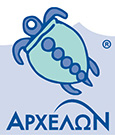If you find an injured sea turtle
If you come across an injured sea turtle call ARCHELON-Rescue Network at +30 6941511511. Read more for detailed instructions.
If you find a dead sea turtle
If you find a dead sea turtle call ARCHELON-Rescue Network at +30 6941511511. Read more for detailed instructions.
If you find a nest or hatchlings
If you find a nest or a hatchling call ARCHELON on +30 6941 511 511 to receive appropriate / necessary instructions on how you can help. Read more for detailed instructions.

